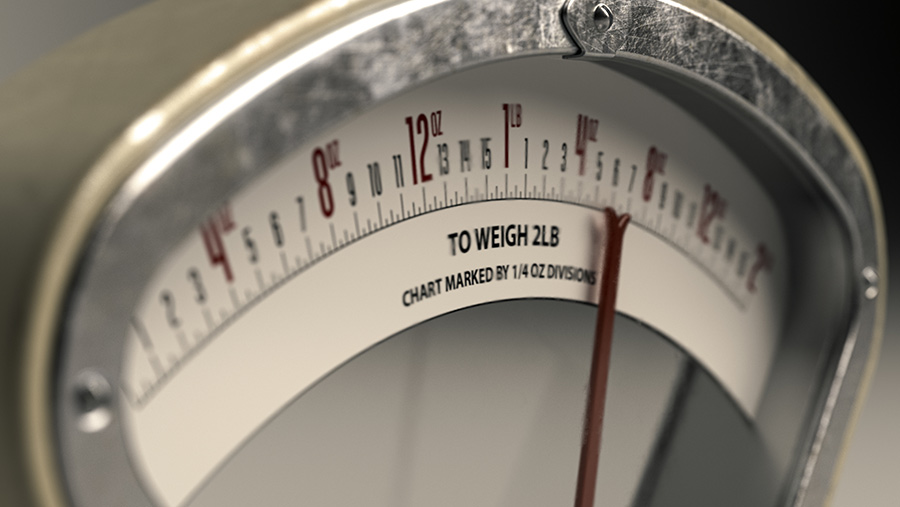Opinion: Counting the cost of Brexit – imperial or metric
 © Alswart/Adobe Stock
© Alswart/Adobe Stock I was never a fan of Brexit and nothing has happened since the UK left the EU to alter my mind.
So when prime minister Boris Johnson recently announced a move to bring back imperial units, I groaned that here he was again, cynically playing on voters’ fears about Britain’s “lost sovereignty”.
Why is there a need to “bring back” imperial units of measurement to farms when we have never stopped using the ones we liked in the first place?
When, for instance, did you last hear a farmer boast of harvest yields in tonnes per hectare rather per acre?
It’s a longstanding matter of professional pride that British arable farmers have never given up a preference for gross exaggeration in imperial.
See also: Brexit camps remain divided 6 years after referendum
Similarly, when have you ever read in the Farmers Weekly’s Land and Farms section an advert or editorial that leads with the description of a farm in hectares?
Farms sound bigger in acres (2.471 times bigger, to be precise), and cheaper to buy (£10,000/acre rather than £24,710/ha).
The UK joined the European Economic Community (now the EU) in 1973, when I was halfway through my formal education.
So, I was part of that generation whose maths classes were always decidedly edgy as we started learning addition, subtraction and multiplication in imperial pounds (worth one hundred and forty four pennies) and finished in metric pounds (worth only one hundred pence).
As a 14-year-old at the time, the major implication of “metrication” to me was significant inflation in the price of sweets.
Penny chews remained the same size, but I now got forty-four fewer of them for a pound of my pocket money.
By the time I started working on the farm in the school holidays in the late 1970s, I remember finding my father being perfectly at ease with the switch from tons to tonnes.
He’d quickly become fond of the “tonne” when he discovered it was 16.047kg lighter than a ton. So, without having to actually grow better crops, his harvest yields had improved effortlessly.
When you farm marginal arable land like he did, and I still do, every bit of self-deception helps in terms of maintaining one’s morale.
If we have to revert to hundredweights from 50kg bags, so be it: there are 20 of each in tons and tonnes, respectively.
Similarly, switching back to gallons from litres wouldn’t cause me too much distress: 5 litres is close enough to a gallon for me to be able to do the multiplication/division in my head, even when I‘m working under time pressure, filling the tank of my crop sprayer in unsettled weather.
But let’s not take this article a word further for fear of falling into the trap that Mr Johnson has set for us.
By starting a silly discussion about the relative benefits of metric and imperial measures, the PM hopes to distract us from the serious problems brought about by Brexit.
For farmers, these include the EU trade implications of unilaterally tearing up the Northern Ireland protocol, the loss of farm subsidies, and the gradual exposure of British agriculture to free trade in food.
All these important consequences of Brexit are likely to prove expensive for farmers – however you measure it.

